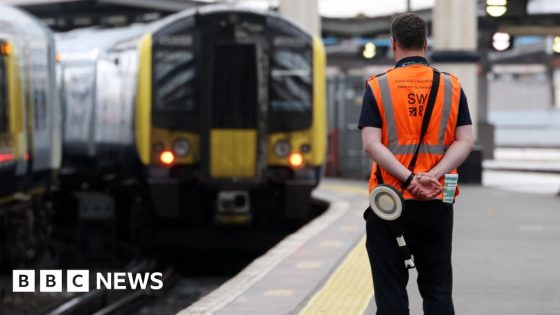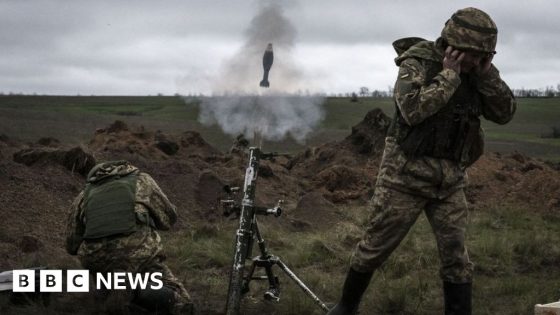Train drivers have accepted a pay deal that will see the end of more than two years of strike action in England, Scotland and Wales.
Aslef union members accepted an offer which included a 5% backdated pay rise for 2022-23, a 4.75% rise for 23-24, and a 4.5% increase for 24-25.
The package had been agreed by union officials and the government in August, but required the backing of members in a vote.
Industrial action has caused widespread disruption on the railways since strikes began in July 2022.
The breakthrough heralds the end of industrial action with 16 train operating companies, which saw drivers stage 18 strikes and take part in several overtime bans, leading to cancelled services.
Some strikes caused an almost complete shutdown of railway lines in England and some cross-border services, including during major sporting and public events.
Aslef, which claims to represent more than 21,000 train drivers, said 96.6% of its membership who voted backed the deal. The turnout was 84%.
The government has refused to release a figure of what the average salary of a train driver will be following the pay rises. In 2023, the average wage was £60,055 per year, according to the Rail Delivery Group, which represents train companies.
Based on the pay increases announced by the union, the BBC has calculated an average salary is estimated to be about £69,000 in 2024/25.
The union said that when compounded, the offer works out at 15%, is backdated, pensionable and includes drivers who retired or left the industry during the dispute.
Mick Whelan, the union’s general secretary, said the vote marked the end of the longest train drivers’ strike in history.
“It was not a fight we sought, or wanted. All we sought after five years without a pay rise, working for private companies who, throughout that period, declared millions of pounds in profits and dividends to shareholders, was a dent in the cost of living,” he said.
Under the new Labour government, senior officials began direct pay talks with Aslef bosses in July.
Transport Secretary Louise Haigh said the end of the dispute was “an important step towards fixing our railways and getting the country moving again”.
Ms Haigh said solving the row would also ensure a more reliable service but added the deal “crucially” cleared the way for “vital reform – including modernising outdated working practices – to ensure a better performing railway for everyone”.
However, Aslef said the pay rise was a “no-strings offer”, with Mr Whelan suggesting the deal was agreed “without a land grab for our terms and conditions”.
A major stumbling block which resulted in previous talks breaking down was due to proposed changes to working conditions.
Aslef rejected previous deals, arguing drivers were being asked to sacrifice too much in exchange for too low a wage rise.
But train companies and the previous Conservative government argued that changes to ways of working, for example to driver training and rosters were necessary to make the railway function more reliably and save money.
They said hard-pressed taxpayers were having to contribute millions each week to keep services running.
A spokesperson for the Rail Delivery Group said it welcomed the news that the dispute had been resolved.
“The whole railway now needs to pull together and focus on delivering the best possible service for our customers,” they added.
Source Agencies



